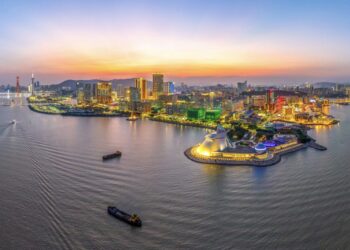Is MGM Resorts International’s ‘non-compete’ agreement with Pansy Ho compatible with Macau’s legal framework for its gaming industry?
If ‘yes’, what if anything will the agreement do to the competition landscape in Macau? If ‘no’, what is the Macau government going to do about the deal?
Why has MGM Resorts decided such an agreement is necessary with its own Macau joint venture partner? The answer is that it looks—for the first time since the Macau gaming market was liberalised in 2001-2002—as if Macau is going to allow an individual (i.e. Pansy Ho) to be both shareholder and director of two Macau gaming operators simultaneously. Even Stanley Ho has never managed that. When his son Lawrence’s company Melco International entered a Macau gaming joint venture with Australian businessman James Packer in 2006, Dr Ho had to resign from his chairmanship of Melco. In retrospect, however, that wasn’t because of pressure from the Macau authorities worried that Dr Ho couldn’t be an executive of SJM Holdings and Melco at the same time, but because the Australian regulators wouldn’t sign off on the Melco-Packer JV as long as Dr Ho was still in the picture.
So why might Pansy Ho be allowed to saddle and ride two Macau gaming horses at once? The first possibility is that US regulators might not raise any objections, though several are apparently looking closely at the situation. The second is that the impetus is coming from inside Macau at high political level. There’s a desire to ensure a peaceful succession at STDM, the investment company that Dr Ho used to chair, and by extension at STDM’s casino operating unit SJM Holdings. That follows months of in-fighting among Dr Ho’s surviving consorts and offspring. It may also be linked to Macau’s tendency to tailor rules to suit the commercial needs of the small number of influential families that have run the place for generations.
For years, Pansy Ho has been touted as a ‘successor’ to Dr Ho at STDM. This was not particularly surprising, given the dynastic way that even public or partly-public companies tend to be run in Greater China. The difficulty is that—thanks to a sub-concession bought from her father, stemming from his gaming licence—Ms Ho is already a player in the Macau market, via her joint venture with MGM Resorts. That JV was one of five new concessionaires and sub-concessionaires allowed into the market—theoretically as competition to STDM (and latterly SJM) following liberalisation.
For Ms Ho simultaneously to have executive and shareholding roles in MGM China and in STDM looks like a conflict of interest to some observers. MGM Resorts’ non-compete agreement presupposes Ms Ho will be a person of influence at STDM, even if technically she’s only a minority shareholder there. That means she will be expected to wield that influence either passively—by leaving the room or abstaining when a piece of STDM business relevant to MGM China’s interests is discussed—or to wield the influence actively, by seeking to steer STDM, SJM or Shun Tak away from a course of action that might hurt MGM China’s interests. The latter is explicitly mentioned in the agreement.
So Ms Ho has either to wield influence at STDM to make MGM Resorts happy—in which case she risks making the rest of the Macau market operators unhappy and possibly her fellow directors at STDM—or she will have to choose between MGM China or STDM. Some think it would be better for the proper functioning of the market if she were forced to choose between the two now.
But where’s the incentive if she can have her cake and eat it? And why does any of it matter if she’s a minority shareholder in both companies and everyone’s making money? They’re all good questions, and find echoes in anti-competitive practices that have been enthusiastically pursued for years in Hong Kong, where specifically, price-fixing for many goods and services abound.
IAG e-Newsletter makes no suggestion that price-fixing is the aim of the MGM Resorts non-compete agreement. But here’s why a non-compete agreement might cause problems for Macau. Macau depends for its international credibility as a gaming investment market on the notion that over time its regulatory and legal standards are converging with international standards, not diverging. North America and the European Union have outlawed most forms of anti-competitive agreement—as well as their ugly big sister, price-fixing cartels. It could therefore make overseas gaming regulators distinctly uncomfortable—and possibly harm Macau investors’ interests directly or indirectly—were the Macau government to encourage or simply allow by default, an anti-competitive climate and anti-competitive practices to develop in relation to the local casino market.
In theory, anti-competitive practices are illegal in Macau. Article 21, paragraph 3, of Macau Law 16/2001 states: “Any form of arrangement amongst concession companies or associated companies of a concession company which may obstruct, restrict, impair or destroy fair competition shall be prohibited”.
The clause was inserted in that particular law—a statute setting out the framework for the Macau gaming industry after market liberalisation—because Macau did not have (and still does not have) a law dealing with restrictive trade practices. Whether Article 21, paragraph 3 will ever be enforced is another matter.
For the full story on Pansy Ho’s anti-compete agreement with MGM Resorts, read the June edition of Inside Asian Gaming.



































